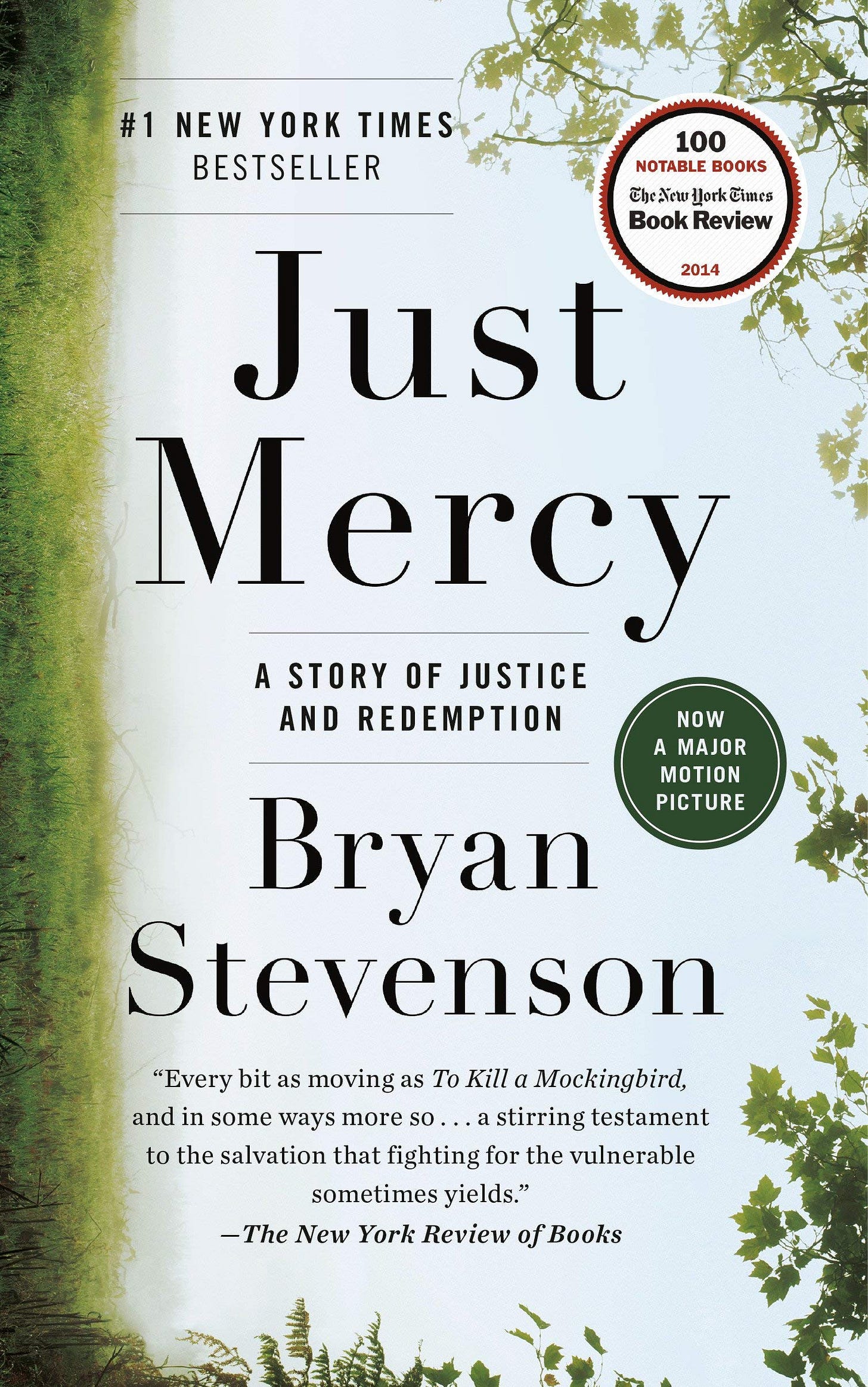Published 2014 | 336 pages
Tags: Non-fiction, Memoir, Social Justice, Criminal Justice
Each of us is more than the worst thing we’ve ever done.
What is it about?
**We interrupt this section of the review for an important announcement**
Go read this book. Right now. Whatever is next on your list, it can wait (even if the next book on your list is A Gentleman in Moscow). You’ve probably seen the movie, but there’s a lot more in the book that will move and inspire you.
Why are you still reading this review and not the book?!?
Ok, now back to what it’s about. I couldn’t help but compare this to John Grisham’s The Innocent Man, which is the unbelievable true story of Ron Williamson who spent 11 years on death row for a murder he didn’t commit. Bryan Stevenson may not have the writing chops of Grisham, but he deftly tells the story of Walter McMillian, a man who spent 6 years on death row for a murder he didn’t commit. Mr. Stevenson fought for this condemned man for 2 years before getting him exonerated.
What is frustrating about Walter’s story, and what sets it apart from Ron’s, is that he had dozens of witnesses to his alibi. His family and many members of his community were with him at his house on the day of the murder. It’s absolutely wild.
What do we tell these children about how to stay out of harm’s way when you can be at your own house, minding your own business, surrounded by your entire family, and they still put some murder on you that you ain’t do and send you to death row?
Why read the book if you’ve seen the movie?
For the stories.
Mr. Stevenson alternates chapters about Walter with chapters about other clients and it’s one shocking story after another. Don’t misunderstand: Stevenson isn’t sensationalizing his clients’ lives - his care and concern come through his writing (and if you listen to him read the audiobook it’s even more evident). Each client is a human being that is broken and in need of someone competent and caring in his or her corner.
How did it impact me?
The book is shocking, infuriating, discouraging, but ultimately full of hope. Mr. Stevenson cares about the poor, the mentally ill, the abused, incarcerated children, incarcerated women, and death row inmates. He is working tirelessly for those considered “the least of these.” It crossed my mind multiple times that if Jesus were on the earth today, he’d join in the work that Bryan and his colleagues at Equal Justice Initiative are doing.
I was moved by the racist guard’s reformation and the chocolate milkshake. I loved the way Stevenson framed the biblical story of the woman caught in adultery and how we can all be “stone catchers” rather than stone casters. I realized my own brokenness as Stevenson opened up about his and that of his clients. Reading Just Mercy invited a lot of introspection and it will receive a revered position on my shelves.
Who would I recommend this book to?
Everyone. You should read it next.
Some of my family members and friends have struggled with other books on race and criminal justice due to an author’s bias or the way he or she paints racism in America with broad strokes and condemning tones. Just Mercy is not about that. I’ve included some quotes below to give you a flavor.
Reading this book was an uplifting experience and I wish the same for you.
Noteworthy quotes
My work with the poor and the incarcerated has persuaded me that the opposite of poverty is not wealth; the opposite of poverty is justice.
The closer we get to mass incarceration and extreme levels of punishment, the more I believe it’s necessary to recognize that we all need mercy, we all need justice, and—perhaps—we all need some measure of unmerited grace.
The power of just mercy is that it belongs to the undeserving. It’s when mercy is least expected that it’s most potent—strong enough to break the cycle of victimization and victimhood, retribution and suffering. It has the power to heal the psychic harm and injuries that lead to aggression and violence, abuse of power, mass incarceration.




